If you have ever tried to raise a dog from a puppy, you know how frustrating it can be when they seem to want to bite on everything. While almost every puppy is bound to bite something they are not supposed to at some point, that doesn’t mean you have to let it happen. If you plan on getting a puppy soon or have recently gotten one, this post is for you! Read on to learn about different methods you can use to get your puppy to stop biting!
Contents
Get Your Puppy Plenty Of Exercise
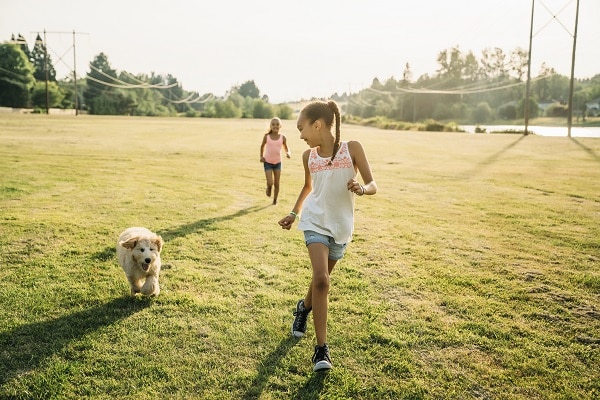
Every puppy owner knows that teething can be a trying time. As those sharp little teeth start to come in, many puppies turn to biting as a way to relieve the pain. Unfortunately, this often leads to nipped fingers and scratched furniture. However, one simple solution is exercise. A tired puppy is much less likely to bite than one full of energy. So, take your pup for some extra walks, or play some games of fetch in the park. This will help relieve their discomfort, but it will also wear them out, making them more likely to sleep through the night. And who knows, you might enjoy spending some extra time with your furry friend.
Redirect The Behavior
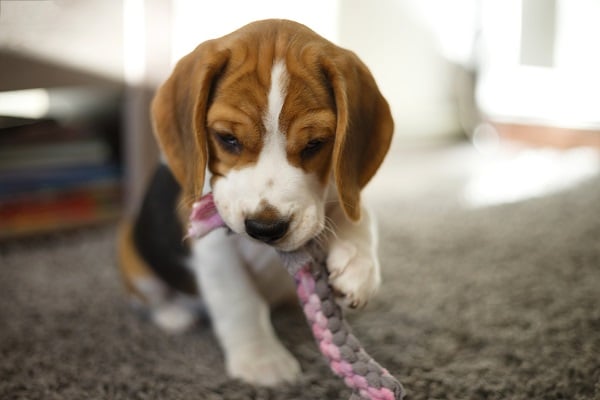
Puppies bite. It’s a fact of life. They’re learning about their world and how to interact with others, and sometimes that means using their teeth. However, it’s important to redirect this behavior so that your puppy grows up to be a well-behaved adult dog. The first step is to provide your puppy with plenty of chew toys. This will help them explore their world safely and give them an outlet for their chewing urges.
It’s also important to be consistent with your commands. If you tell your puppy “no biting” once and then allow them to bite you the next time, they will become confused and frustrated. Finally, remain calm when your puppy is biting. Shouting or scolding will only make the problem worse.
Reward Your Puppy For Not Biting

One of the most important things you can do when training your puppy not to bite is reward them when they don’t bite. This may seem counterintuitive, but it’s an effective way to get your puppy to understand what you’re trying to teach them. Every time your puppy resists the urge to bite, give them a treat or some other form of positive reinforcement. Over time, they’ll start to associate not biting with getting something they want. And they’ll be less likely to do it. Of course, this isn’t a 100% guarantee that your puppy will never bite, but it’s an excellent way to help them learn what you expect from them.
Teach Your Puppy Bite Inhibition
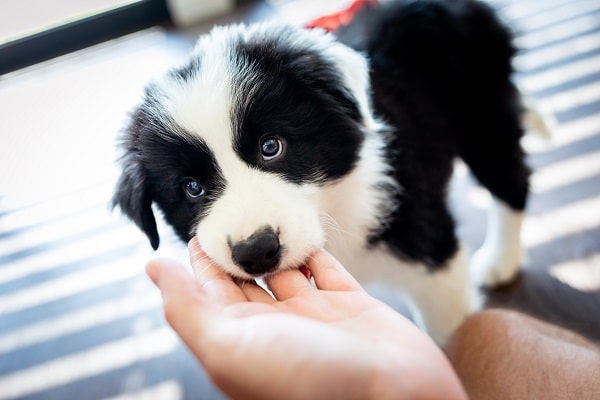
Bite inhibition is when your puppy becomes aware of how hard they are biting down. Teaching your puppy bite inhibition is essential for several reasons. It will help prevent your puppy from biting too hard when playing with people or other animals. This is important because bites that are too hard can lead to big problems, including injuries and even infections.
There are several different ways to teach your puppy bite inhibition. One is to yelp or make a high-pitched noise whenever they bite you too hard. This will startle the puppy and help them understand that they’re biting too hard.
Ignore Your Puppy If They Start Biting

Ignoring your puppy if they start biting may seem odd to teach them that it’s not okay, but it can be very effective. When puppies play with each other, they often use their mouths to nip and bite. This is perfectly normal behavior, but it’s important to start teaching them that biting humans is not acceptable early on. If your puppy starts biting you, the best thing to do is ignore them completely. Walk away from them, and don’t give them any attention – not even eye contact.
After a few minutes, you can return and resume playing with them, but repeat the process if they start biting again. With time and patience, your puppy will learn that biting doesn’t get them the attention they crave, and they’ll be less likely to do it.
Put Your Puppy In Timeout
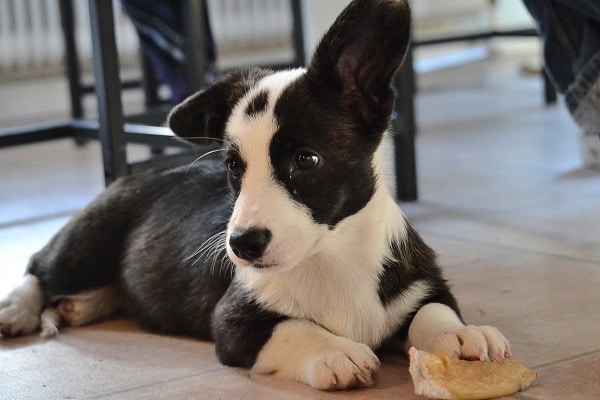
If your puppy is biting, you may be wondering if you should put them in time out. The answer is that it depends on the situation. If your puppy is biting playfully, then time out is not necessary. However, if your puppy is biting aggressively or destructively, time out may be the best option. When deciding whether or not to put your puppy in time out, consider their age, breed, and personality.
For example, young puppies have a shorter attention span. They are less likely to respond to timeouts than older dogs. Breeds prone to separation anxiety, such as labs and shepherds, may not respond well to timeouts. And finally, dogs with a high energy level or those that are quickly excited may not be good candidates for timeouts. They may become even more worked up in an isolated environment.
Time outs should only be used as a last resort, but in some cases, they can be an effective way to stop your puppy from biting. If you decide to put your puppy in time out, make sure to do so in a quiet place where they can’t see or hear anything going on. This will help them to relax and calm down.
Take Your Puppy To A Trainer
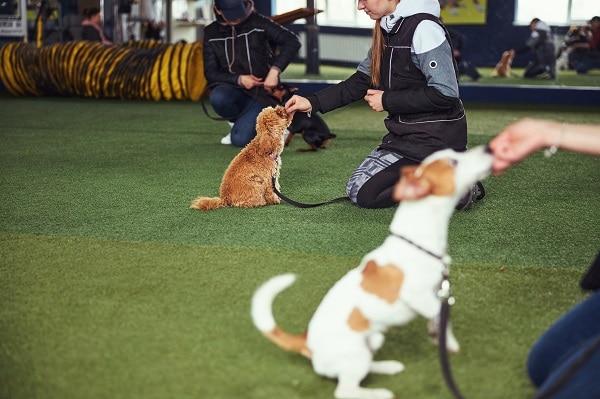
As any new puppy owner knows, puppies love to play – and that sometimes means playfully biting your hands or clothes. While it may be cute at first, this behavior can quickly become problematic (and painful!). If you’re finding it difficult to break your puppy of this habit, you may want to consider taking them to a dog trainer. A professional trainer can teach your puppy the appropriate way to play and provide you with some tips on how to redirect their biting behavior.
In addition, a trainer can help socialize your puppy, which is an essential part of their overall development. Taking your puppy to a dog trainer is a great way to help them learn proper behavior. and get started on becoming a well-rounded dog.
Conclusion
There are many different ways to get your puppy to stop biting, but it’s important to be consistent with your chosen method. Your puppy will learn that biting is not acceptable behavior with time and patience. And, in the meantime, try to enjoy the cute cuddles and playful nips – they won’t last forever! Just remember to treat your puppy like you would a small child, with love and compassion. Soon enough, they’ll be the well-behaved dog you’ve always wanted.


